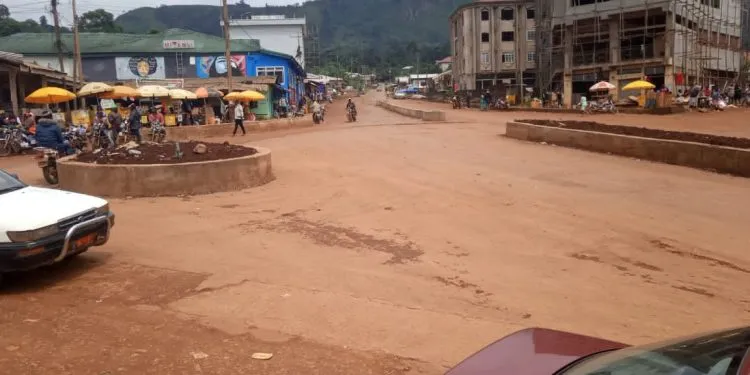The United Nations Office for the Coordination of Humanitarian Affairs, OCHA says close to half a million people in Cameroon’s North West and South West regions have been deprived of food aid in the month of September.
OCHA made the revelation in a recent report addressing the state of affairs following the ongoing lockdown declared in the Anglophone regions by a non-State armed group on 11 September 2021.
In the North-West and the South-West regions “where 1.1 million people are food insecure, Food Security Cluster partners could not distribute food assistance to 200,000 vulnerable people in September.”
“With some local differences and a few exceptions in some urban settings, the ban on movements and activities was widely respected by the population, partly also because of fear of violence or death in case of non-compliance… Access to basic services including health, education, and livelihoods was severely affected,” the report read.
According to OCHA the ban on movements and activities has not only worsened people’s access to timely and equitable health care but has also made life in all other sectors challenging for residents in the regions.
Among key victims, it noted, are pregnant women, children under five, patients with chronic diseases, people living with HIV/AIDS, and victims of trauma.
Despite the need to continue providing aid, “protection partners had to halt their services including Mental Health and Psychosocial Support, which aggravated the situation of 300-500 beneficiaries among the most vulnerable people.”
“Women who usually generate income to provide for themselves and their families have become more vulnerable. Addressing GBV cases before courts have been postponed due to the lockdown, causing further justice delays,” the agency revealed, adding “as men are forced to stay at home with women and girls, and with the economic burdens, distress and frequent frictions, an increase in GBV cases is expected.”
OCHA in its report also provided the context of the current lockdown set to end on October 2nd, noting it was declared at a time the level of insecurity in the two regions was already very high.
The fear of the unknown, OCHA said, worsened the entire situation with many fleeing the troubled regions for fear of becoming casualties: “Since 15 September, United Nations and humanitarian partners were obliged to fully suspend humanitarian activities and put on hold the delivery of humanitarian assistance to people in need in both regions. On the eve of the lockdown, about 700 people fled their villages to West and Littoral regions, and about 1,800 persons moved to urban centers or safer localities within the North-West and South-West. Deprived of humanitarian assistance in the new locations and without access to economic activities, their vulnerabilities are being exacerbated,” the organization remarked.
“Moreover,” it went on, “the lockdown is increasingly impoverishing the affected people, especially those dependent on daily work to survive. With the absence of banking services, risks of resorting to negative coping mechanisms are aggravated.”
The ongoing lockdown remains controversial, as different separatist factions expressed different views with the call. To others, it remains a form of punishing locals with little or no effect on government or the official state of affairs in the regions.



